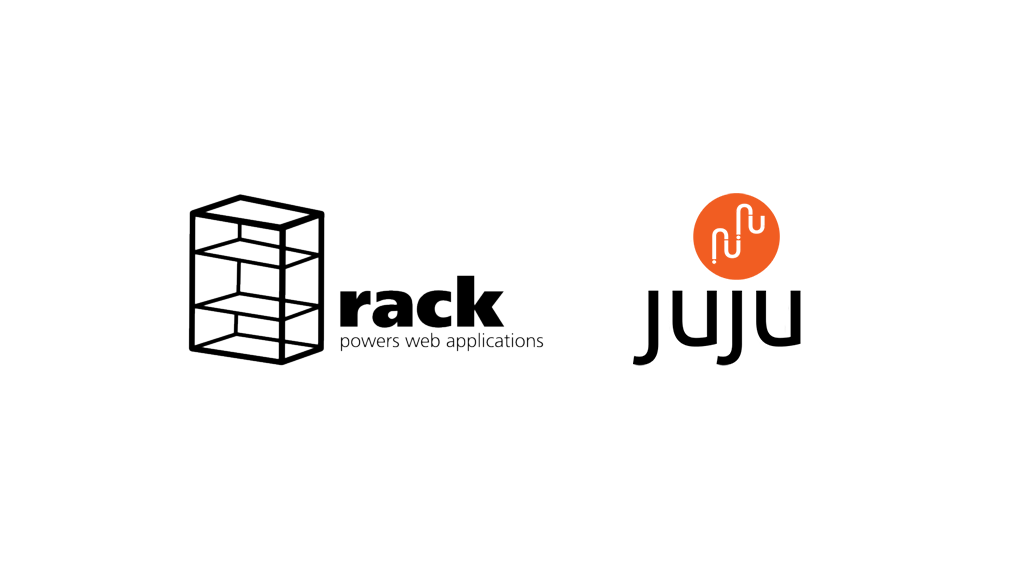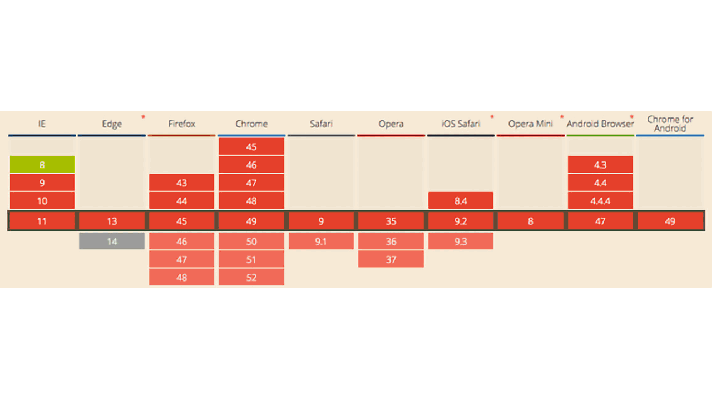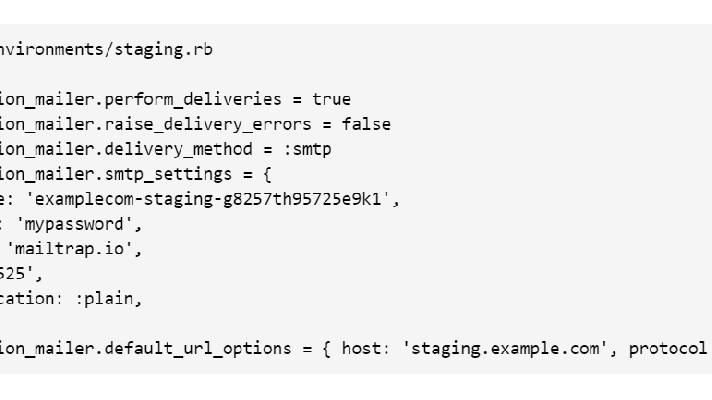Easy Deployment of Rack Applications with Juju

What is Juju?
Juju is a service orchestration management tool developed by Canonical. With Juju, it is easy to build entire environments on public clouds, such as Amazon Web Services and HP Cloud, as well as private clouds built on OpenStack or raw bare metal via MAAS.
Juju uses Charms—scripts that can be written in any language to deploy and configure services. There are over 100 services ready to deploy.
With Rack Charm, you can deploy your applications on Amazon EC2 in just a few minutes. Let me provide you some examples. All the examples are tested for Ubuntu 12.04 Precise Pangolin.
Getting started
Install Juju.
1 2 | <span class="go">sudo add-apt-repository ppa:juju/pkgs sudo apt-get update && sudo apt-get install juju</span> |
Run the command-line utility with no arguments to create a sample environment.
1 | <span class="go">juju bootstrap</span> |
Configure your ~/.juju/environments.yaml environment. See how to run services on your local machine via Linux containers in this documentation. Below is the Amazon EC2 example.
1 2 3 4 5 6 7 8 9 10 11 | <span class="na">default</span><span class="pi">:</span> <span class="s">sample</span> <span class="s">environments</span><span class="pi">:</span> <span class="na">sample</span><span class="pi">:</span> <span class="na">type</span><span class="pi">:</span> <span class="s">ec2</span> <span class="na">access-key</span><span class="pi">:</span> <span class="s">YOUR-ACCESS-KEY-GOES-HERE</span> <span class="na">secret-key</span><span class="pi">:</span> <span class="s">YOUR-SECRET-KEY-GOES-HERE</span> <span class="na">control-bucket</span><span class="pi">:</span> <span class="s">juju-faefb490d69a41f0a3616a4808e0766b</span> <span class="na">admin-secret</span><span class="pi">:</span> <span class="s">81a1e7429e6847c4941fda7591246594</span> <span class="na">default-series</span><span class="pi">:</span> <span class="s">precise</span> <span class="na">juju-origin</span><span class="pi">:</span> <span class="s">ppa</span> <span class="na">ssl-hostname-verification</span><span class="pi">:</span> <span class="no">true</span> |
Bootstrap the environment.
1 | <span class="go">juju bootstrap</span> |
Sinatra example with the html2haml app
Deploy a web server.
1 | <span class="go">juju deploy nginx-passenger</span> |
Create a configuration file for Rack Charm. Let’s call it html2haml.yml.
1 2 3 | <span class="na">html2haml</span><span class="pi">:</span> <span class="na">repo_url</span><span class="pi">:</span> <span class="s">https://github.com/twilson63/html2haml.git</span> <span class="na">app_name</span><span class="pi">:</span> <span class="s">html2haml</span> |
Deploy Rack Charm with the config you have created in the previous step.
1 | <span class="go">juju deploy rack html2haml --config html2haml.yml</span> |
Relate the config to the web server.
1 | <span class="go">juju add-relation html2haml nginx-passenger</span> |
Open the stack up to the outside world.
1 | <span class="go">juju expose nginx-passenger</span> |
Find the nginx-passenger instance’s public URL.
1 | <span class="go">juju status</span> |
The Ruby-on-Rails v3.0 example
In Ruby on Rails, the process resembles the Sinatra deployment, but additionally, the PostgreSQL database is used.
Create the sample_rails.yml config file.
1 2 3 | <span class="na">sample_rails</span><span class="pi">:</span> <span class="na">repo_url</span><span class="pi">:</span> <span class="s">https://github.com/pavelpachkovskij/sample-rails.git</span> <span class="na">app_name</span><span class="pi">:</span> <span class="s">sample_rails</span> |
Deploy the application and the web server.
1 2 3 | <span class="go">juju deploy rack sample_rails --config sample_rails.yml juju deploy nginx-passenger juju add-relation sample_rails nginx-passenger</span> |
Deploy PostgreSQL and relate it to the application.
1 2 | <span class="go">juju deploy postgresql juju add-relation postgresql:db sample_rails</span> |
Expose nginx-passenger and find its public URL.
1 2 | <span class="go">juju expose nginx-passenger juju status</span> |
For more, check out the Juju documentation and the Juju GUI documentation. Juju GUI is a web interface you can deploy right into your environment. It lets you model and design the entire stack via a web browser, including integration with the Juju Charm Store.
Further reading
- Deploying the Discourse Discussion Platform with Juju Service Orchestration
- Deployment Tools for Cloud Foundry: BOSH vs. Juju Charms
- How to Implement Integration Tests for Juju Charms
About the author

Pavel Pachkovskij has experience in front- and back-end development of web applications. He is proficient in Ruby, Ruby on Rails, JavaScript, CSS, etc. Pavel also worked with relational databases, such as MySQL, MariaDB, PostgreSQL, as well as NoSQL solutions, such as MongoDB and Redis. Find him on GitHub.








